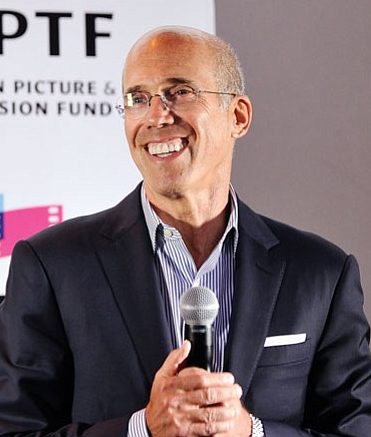Find out the week’s top mobile stories from around the world.
This week.. Facebook sues BlackBerry over voice message tech, Microsoft warns of dangerous EU data limits, mobile, social shopping lead the way in UK and much more.

Facebook sues BlackBerry, claims it stole voice-messaging tech
CNET
Facebook hit BlackBerry with a lawsuit Tuesday, claiming the company stole its voice-messaging technology and other patented processes.
The social media giant accused BlackBerry of infringing on six patents in a complaint filed in San Francisco federal court, Bloomberg reports.
Beyond the voice-messaging patent, Facebook says the Canadian business software provider and one-time phone giant infringed on tech used to improve how mobile devices deliver graphics, video and audio and another used to centralize GPS data tracking and analysis.
Read more…
Microsoft Warns Of Dangers Surrounding EU Data Limits
Mobile Marketing Magazine
Microsoft has warned that copyright reforms planned by EU legislators could damage the European Union’s digital development in the future. The planned reforms, which would involve limiting the use of potentially valuable data to non-profit bodies, are due for discussion and a vote next week.
Microsoft is one of many companies, research bodies and organisations that has stepped up its lobbying of the European Parliament ahead of the vote, which will determine the Parliament’s position ahead of talks with member states and the European Commission. In a statement, Microsoft warned that the current proposal could hold back EU attempts to compete with Japan, China and other nations in data science and research, as well as having “a great number of unintended negative consequences”.
Read more…
Mobile and social shopping lead the way as UK consumers continue to embrace ecommerce
Internet Retailing
Browsing on the move and social media have pushed mobile into the mainstream for shopping, using them while travelling to work, to browse in their free time and to shop from social media.
According to the Royal Mail’s annual UK report, laptops are the device most commonly used in the evening, while smartphones are most likely to be used at all other times of the day. In fact, since 2017, smartphone usage has increased in all locations. 78% now use their smartphone for online shopping whilst travelling or commuting, up from 71% in 2017.
Almost half (45%) of UK shoppers like to browse online in their free time and 44% of UK shoppers find it cheaper to buy online than in-store.
Read more…
Geographic location biggest indicator of mobile app preferences
Phys.org
Across the globe smartphones and mobile apps have become an integral part of everyday life, but what determines the apps you use?
A new study involving UCL reveals that the country you live in rather than your demographic data is actually the biggest indicator of the types of apps you download and use.
The study, conducted in collaboration with the Insight Centre for Data Analytics, Ireland, University of Helsinki, Finland, and Lancaster University, UK, will be presented at the MobileHCI 2018 conference in Barcelona, Spain, September 3-6.
Researchers found that English-speaking countries, including the UK, USA, Australia, Canada and New Zealand, as well as Japan and South Korea had the highest app usage, with the lowest app usage being found in Argentina, the UAE, Saudi Arabia, Qatar, Pakistan and India.
Read more…
Katzenberg’s WnderCo Invests in Mobile Privacy Outfit
LA Business Journal
Jeffrey Katzenberg’s latest investment is a digital and mobile privacy security company.
WndrCo, Katzenberg’s technology and entertainment holding company, announced Sept. 5 that it lead a $295 million investment in Menlo Park-based Anchor Free Inc.
AnchorFree describes itself as the, “first company to bring enterprise-level privacy and security products to consumer mobile devices, helping to protect their identities and data online.”
Other investors in the funding round include Accel Partners, 8VC and Green Bay Ventures.
Katzenberg, a co-founder of DreamWorks Animation, launched WnderCo last year. The venture has so far publicly focused on $1 billion that has been raised for NewTV, which Katzenberg has described as a professionally produced alternative to short-form online videos. WndrCo has offices in Los Angeles and San Francisco.
Read more…
Internet of Things’ road safety data subsidiary reaches key milestone with European patent
Proactive Investors
The road-safety focused subsidiary of Internet of Things Inc. has been boosted after received a key European patent for its data tech.
The group has been granted the patent for the “mobile collection, analysis and processing of meteorological data”, which was originally filed in 2015, said ITT. It will allow the collection of granular data, as well as the capacity to license and protect its technology.
The firm’s AI system has developed a unique set of meteorological data, based on hundreds of millions of miles of road weather data, which allows it to make real-time hyper-local road condition predictions.
Read more…
Stealthy wants to become the WeChat of blockchain apps
Tech Crunch
Meet Stealthy a new messaging app that leverages Blockstack’s decentralized application platform to build a messaging app. The company is participating in TechCrunch’s Startup Battlefield at Disrupt SF and launching its app on iOS and Android today.
On the surface, Stealthy works like many messaging apps out there. But it gets interesting once you start digging to understand the protocol behind it. Stealthy is a decentralized platform with privacy in mind. It could become the glue that makes various decentralized applications stick together.
“We started Stealthy because Blockstack had a global hackathon in December of last year,” co-founder Prabhaav Bhardwaj told me. “We won that hackathon in February.” After that, the #deletefacebook movement combined with the overall decentralization trend motivated Bhardwaj and Alex Carreira to ship the app.
Read more…
Mobile phones to drive airline tickets, hotel bookings in India by 2022: Facebook-KPMG
Hindustan Times
With more and more Indians using phones for shopping experiences, nearly 9 in 10 airline ticket purchases and hotel bookings will be mobile influenced in the country by 2022 — creating a $19 billion and $12 billion sales opportunity for airline and hotel brands respectively, a Facebook-KPMG report revealed on Wednesday.
Nearly half of the total consumer loss in airline ticket purchases (11 per cent out of 23 per cent) and hotel bookings (16 per cent out of 32 per cent) is on account of media friction (consumer drop-off from their purchase journey).
In fact, the mobile can help airline and hotel brands tap into a potential sales opportunity of $9 billion and $2 billion by reducing media friction, the report added.
Read more…
In China, a new app is taking on WeChat
Tech In Asia
WeChat, China’s ubiquitous messaging app with over a billion users, has a challenger.
Launched August 20, the brand-new app is Bullet Messenger (our translation of original name “Zidan Duanxin”). It’s taking a shot at China’s virtually monopolistic messaging app sector, where Tencent’s WeChat commands 86 percent of China’s social media app users.
Bullet Messenger has surged rapidly to be the most downloaded free app on Apple’s China App Store within four days, according to data from app analytics firm App Annie.
Read more…
Bank of Japan laments government push to cut mobile fees
Nikkei Asian Review
The Japanese government’s recent push for mobile phone carriers to lower their service fees has vexed the Bank of Japan, which fears another drag on already sluggish inflation.
Like volatility in the yen and crude oil, falling mobile device prices and service fees due to competition have frequently held down overall consumer price growth, to the BOJ’s frustration.
“A further drop in wireless fees would put downward pressure on prices,” a senior central bank official said.
The BOJ’s quarterly economic outlook report released in July called falling mobile-related prices a “sectoral shock” affecting inflation. It estimated that this reduced growth in the consumer price index by 0.16 percentage point in June.














